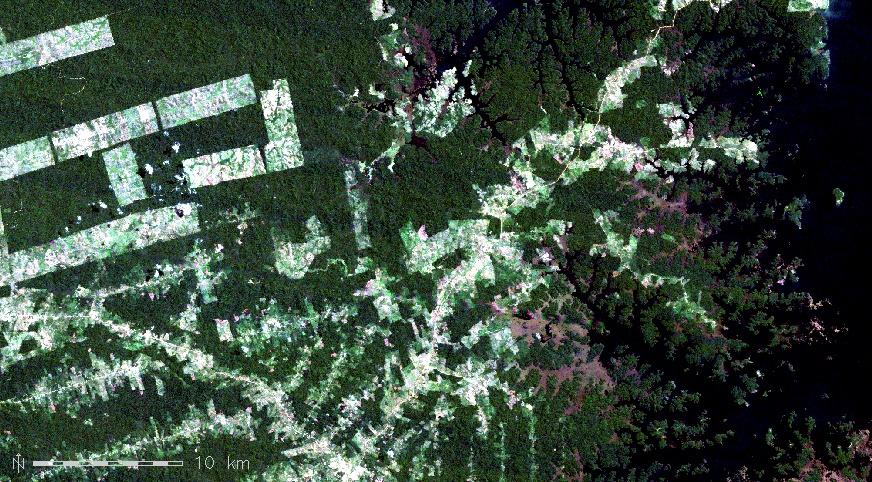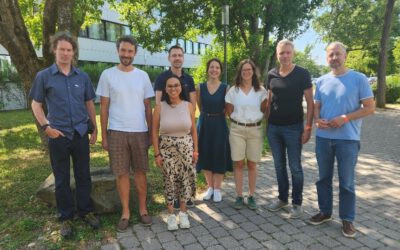Postdoc or PhD position – Postdoc oder Doktorandenstelle

At the University of Würzburg the Department of Remote Sensing invites applications for a Postdoc or PhD position working in the analysis of global or regional change processes, preferably in terrestrial ecosystems. In-depth analysis of land cover status and change using various remote sensing data and methods are of interest in collaboration with auxiliary data by other disciplines such as social sciences. Research topics can range from agricultural or forest ecosystems up to urban landscapes or further climate change sensitive areas such as mountainous regions. The human-environment interaction and the application of research approaches is of prime interest.
You can apply for a Postdoc or PhD position at our Remote Sensing Department and we highly welcome if you submit your research ideas for these positions, as well as suggestions for the study area. We ask you to submit a max. 3 page research proposal including the scientific background, research questions and aim of your research. The research project should be aligned within the larger framework of our department in an institutional collaboration with the German Remote Sensing Data Center (DLR-DFD).
A degree in geography, geosciences, geoecology or other relevant fields is required as well as sound knowledge of remote sensing data processing and research.
Interest to contribute to the Remote Sensing Department and working in a team is expected.
Please send your application (CV, letter of interest including a short description of your envisioned research project, list of publications (esp. Postdoc) and two names of references until July 1st 2018 to
l-geofernerkundung@uni-wuerzburg.de
We are very much looking forward to your application!
Der Lehrstuhl für Fernerkundung am Institut für Geographie und Geologie der Universität Würzburg sucht zum nächst möglichen Zeitpunkt engagierte WissenschaftlerInnen, die sich für die Erforschung globaler oder regionaler Veränderungsprozesse bevorzugt in terrestrischen Ökosystemen interessieren. Es sollen vertiefende Fragestellungen im Kontext des Globalen Wandels mit Methoden der satellitengestützen Erdbeobachtung unter Einbeziehung von Daten und Erkenntnissen auch aus den Human- und Sozialwissenschaften adressiert werden. Der fachliche Rahmen erstreckt sich von den Agrar- und Wald-Ökosystemen über Fragen zur Urbanisierung bis hin zur Beobachtung klimasensibler Regionen z. B. in den Hochgebirgen der Erde. Die Mensch-Umwelt-Interaktion und der Transfer von Forschungsergebnissen in nutzbare Anwendungen stehen im Fokus.
Sie können bei uns als Postdoc oder Doktorand einsteigen und wir freuen uns, wenn Sie auch Ihre eigenen Ideen einbringen bei der Wahl des Forschungsthemas und Arbeitsgebietes. Die Arbeiten sollten in einen größeren Kontext unserer Forschung in institutioneller Kooperation mit dem Deutschen Fernerkundungsdatenzentrum des DLR eingebunden werden.
Ein Abschluss in einem, den Aufgaben entsprechenden, Hochschulstudiums (Geographie, Geoökologie, Geoinformatik u.a.) ist Einstellungsvoraussetzung, sowie fundierte Expertise in der Analyse von fernerkundlichen Daten.
Teamfähigkeit und Kooperationsbereitschaft, sowie das Interesse und die Bereitschaft sich an der Weiterentwicklung des Lehrstuhls mitzuwirken, werden vorausgesetzt.
Bitte senden Sie Ihre vollständigen Bewerbungsunterlagen inklusive Lebenslauf, Publikationsliste (falls Postdoc) und die Namen zweier Referenzen, sowie einen kurzen ausformulierten Forschungsansatz, den Sie im Rahmen ihrer Postdoc oder Doktorandenanstellung bearbeiten wollen (max. 3 Seiten mit Forschungsansätzen und Fragestellung), bis 01.07.2018 digital an:
l-geofernerkundung@uni-wuerzburg.de
Wir freuen uns auf Ihre Bewerbung!
TVL 13 100% (Postdoc), 50% (PhD), from end of 2018 for up to 3 years.








